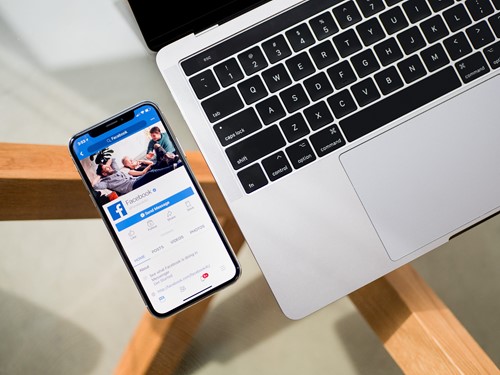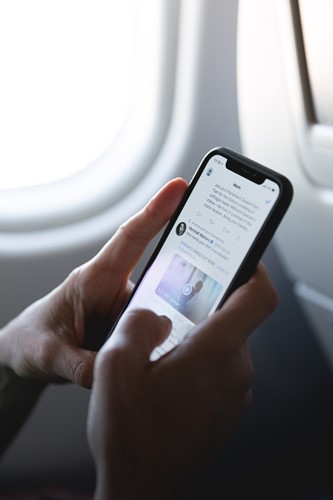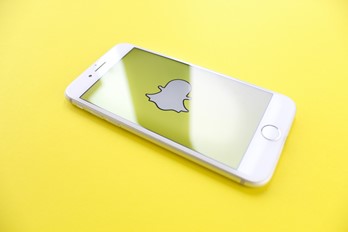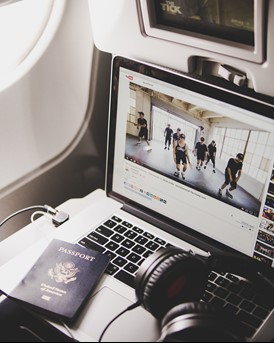- Online Advertising
- 08.16.2018
It’s 2018 - Time to Abandon Organic-Only Social Campaigns
It’s no secret that in 2018, social media is booming with business for all kinds of companies and full of endless options for consumers. Infusionsoft’s data shows that in 2018, 74.4% of businesses planned to use social media. But what does actually ‘using’ social media for your business even mean anymore? With thousands of businesses fighting to capture consumers’ attention, it can be tricky to figure out which social media marketing methods work, and increasingly difficult to understand which Social Media marketing methods are actually moving the needle for your business. Allow us to reveal one major insight that you need to take to heart immediately - Organic-only Social Media Campaigns are a plain waste of time.
What do we mean by organic-only?

No, we don’t mean Social Media Marketing campaigns for Tom’s Deodorant. What we mean by organic-only is relying on all but paid methods of promoting your brand via social - i.e. anything that doesn’t involve paid promotion. It’s now estimated that roughly 5% of your followers will see what you post organically. Between ever-changing news feed algorithms, differing user habits, and again increased competition for visibility, it’s just harder to reach your audience by posting alone. Essentially, with social media marketing in 2018, businesses have to pay-to-play.
Q: How can your business stand out among the masses on Social?
A: Start Advertising
The truth is that there is no shortage of tactics for advertising on Social. What’s more, each of the major platforms have developed their own ad platforms that provide a variety of uses both within and outside of the platform - let’s dig in shall we?

There’s a reason that Facebook occupies the largest market share within Social Advertising. It is important to note that, no matter what your objective, Facebook charges you based on impressions, in order to equate many ads with different formats within the same auction. In the most basic sense, there are three types of Facebook advertising campaigns, broken down by objective: consideration, conversion, and awareness.
- Awareness: Ads that are aimed at generating interest in your product or service on Facebook.
- Consideration: Ads that aim to get people to start considering your business and look for more information about it, on or off Facebook
- Conversions: Ads that are designed to get people interested in your business to purchase or use your product or service
Ad format
The ad format options on Facebook are pretty dynamic and robust, providing plenty of opportunities for all sorts of business to showcase their business and services. Here are the many ad formats you can choose from:
Placements
One of the most powerful things about Facebook advertising are the variety of placements for ads both on and off of the platform - here are the placement options for Facebook Advertising -
Supported ad formats:
- Video
- Photo
- Carousel
- Slideshow
- Canvas (mobile only)
Supported ad formats:
- Video
- Photo
- Carousel
- Stories
Audience Network - beyond FB and Instagram
- Video
- Photo
- Carousel
Messenger
- Supported ad formats:
- Photo
- Carousel
Looking for specific help with Instagram or Facebook advertising? Bonsai Media Group is a BluePrint Certified Facebook Advertiser, and we have experience running the myriad of Facebook Ad campaigns for all sorts of businesses. Contact us today!
Good news! Since Instagram is owned by Facebook, each platform’s advertising options are one in this same. Because of this, it’s probably better to think of Instagram as a placement within Facebook Ads. Yes, the platform comes with it’s own restrictions and best practices, but you’ll be operating within Ads manager, so the best place to start is on Facebook.
Pro tip - Use Instagram stories to advertise limited-time products/services. The most successful stories tend to be ads that show a product being used.

Twitter, while it doesn't occupy quite the same market share as FB or Instagram, it still provides fairly robust advertising options. Plus, in contrast to Facebook, Twitter allows you to pay per engagement or conversion, meaning your ad spend is more closely linked to your overall business goal.
Types of Twitter Ads
There are three types of promotions you’re able to run on twitter -
- Promoted Tweets
- Promoted Tweets are just ordinary Tweets you can display to people who are not already following you.
- Promoted Accounts
- Get your Twitter account in front of targeted users to build a relevant audience.
- Promoted Trends
- Promote a hashtag at the top of the promoted trends list on Twitter’s Discover tabs.
Types of Twitter ad campaigns
Tweet engagements
Promote Tweets and start conversations while only paying for the initial engagement with each user.
Followers
Promote your Twitter account and pay per follower.
Awareness
Promote your Tweets to a broad audience and pay for impressions, like Facebook. This is the only option on Twitter where you pay per impression
Video views
Increase the number of users who view your videos.
Website clicks or conversions
Promote Tweets to people you want to drive and take action on your website.
App installs or re-engagements
Promote Tweets to users you want to download your app, or to users who have already downloaded your app but have not used it for a while, and pay per app install or for both app installs and app opens.
Lead generation
Promote Tweets that incorporate Lead Generation Cards to collect leads and pay per lead collected.
Snapchat

Snapchat provides a unique advertising opportunity wherein you’re able to serve dynamic, ephemeral content to user’s with specific targeting that’s more closely based on timing and geography.
Types of Snapchat ads
Snap Ads
A Snap Ad is a 10-second video ad that includes the option to provide more information to users who swipe up from the ad.
Additionally, Snapchat offers “sequenced messaging,” a bundle of 10-second Snapchat ad video segments that run within the Discover section to produce a longer video.
Sponsored Lenses
One of the more popular aspects of the platform and it’s ad options, Sponsored Lenses allow you take the lens feature and create an ad, giving users content to share and post.
Sponsored Geofilters
A Geofilter is an overlay that user place on their posts can place on their Snaps. As the name suggests, Geofilters are tied to a specific geographic location, down to an individual store or up to an entire country.
On-Demand Geofilters
On-Demand Geofilters are the entry-level Snapchat ads option. You can get started with Snapchat advertising for as little as $5.
Snap to Unlock
Snapcodes on physical media such as billboards, receipts, and even coffee cups, then users interact with ads by taking a picture of the Snapcode or scanning it with the Snapchat app, unlocking a Sponsored Geofilter or Lens.
Pro tip - Snapchat is the place to go if you’re looking to reach a younger audience of mostly 18-24-year-olds.
Less is more. In your Story Ads, use just one call-to-action.
![]()
Whether you’re aiming to serve ads to executives, influencers, or job seekers, there are various ways to advertise on LinkedIn through different ad, each of which type of come with their own benefits and best practices.
LinkedIn self-serve ads
Linkedin’s Campaign manager is where all the magic happens. Schedule campaigns in advance, target the right people, industries, job functions, and more.
Sponsored Content
Share content from your company page and target specific users. This helps you promote company news, promotions, industry news, videos and more in the homepage feed.
Text Ads
A quick and easy desktop-only option, Text Ads feature a compelling headline, a description, and an eye-catching image in a variety of ad formats to drive traffic to your profile or your website.
Sponsored InMail
Send personalized messages to targeted users through LinkedIn’s email client, LinkedIn Messenger, which is an effective option if you want to go for a more personalized approach.
LinkedIn Display Ads
LinkedIn’s programmatic advertising solution, which means you can purchase ads through your preferred advertising platform.
LinkedIn Dynamic Ads
Highly personalized, custom ads that are dynamically generated based on your audience's activity. Target users at the right time with the right message.
YouTube

Last, but certainly not least, is YouTube, the video advertising giant. In order to start advertising on YouTube, you’ll have to create a Google AdWords account. For that reason, similar to Instagram, it’s better to think of Youtube as an aspect of your PPC campaign, and while it will receive an honorable mention, we’re not going to dig into specifics here.
Despite the different objectives and audiences that these different social media platforms offer, they all provide the potential for you to increase awareness of your brand and traffic to your website. If it wasn’t obvious by now, using a combination of these platforms will yield the greatest results for your business. These quick platform outlines and tips can give you a good starting point, but to really see what these platforms can do, you need to dig in and start learning specifics.
That’s Not to Say You Shouldn’t Still Use Supplementary Organic Strategies

So why still do organic social posting? Brand Validation is a big reason why. This one is a no-brainer. If one sees on ad on social, heads to the profile and sees that the there hasn’t been any content posted recently, it doesn’t necessarily instill trust on the part of the user. Make sure to keep posting and keeping the attention of your audience, but organic simply cannot be the only thing you’re doing.
With all of this information, it can be tricky to figure out where to get started. That’s why Bonsai Media Group is here to help. Contact us today for Social Media Marketing Management!